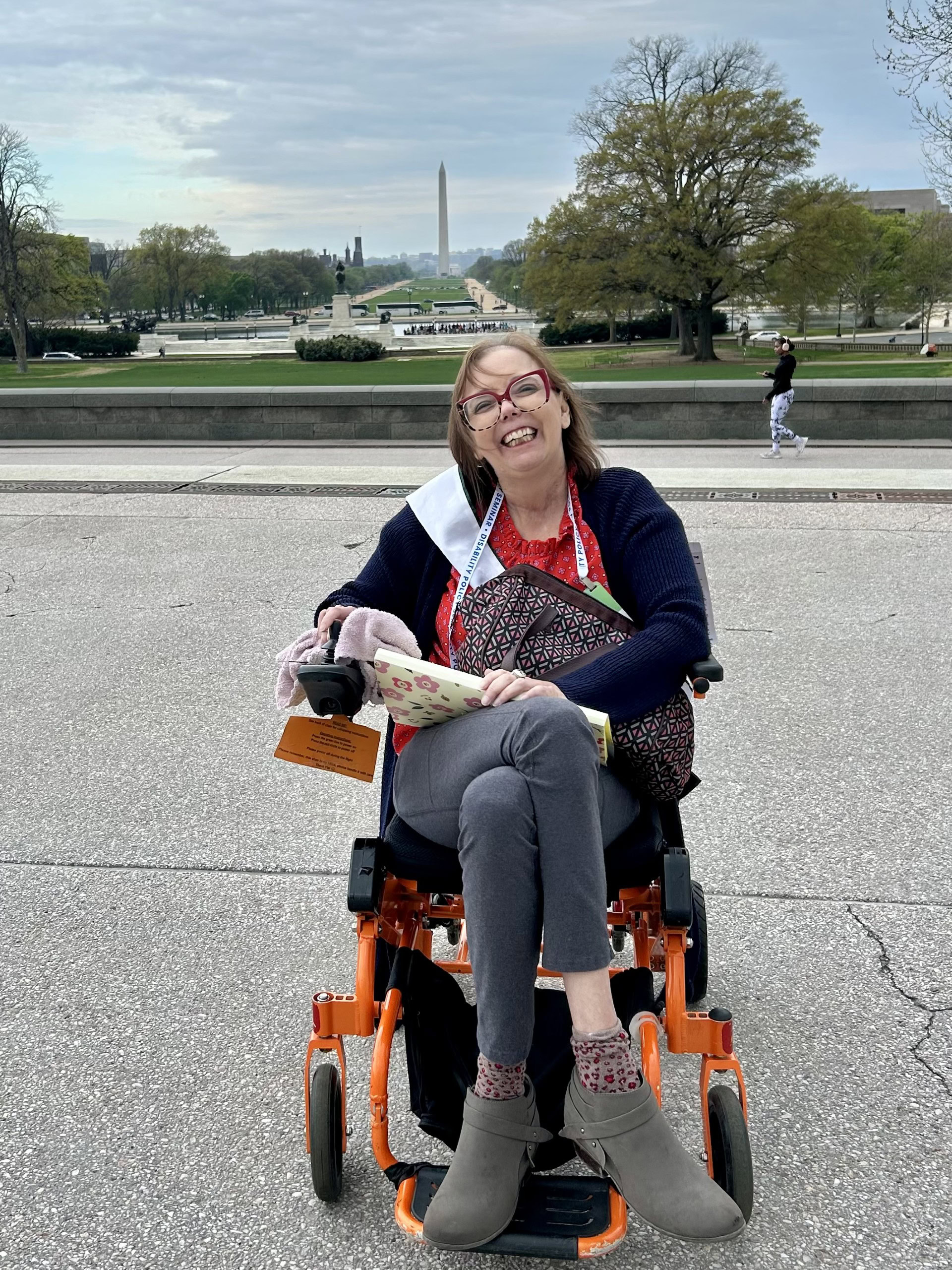
Last month, I wrote about the difficulties of traveling for wheelchair users (“Inaccessible world,” April 22). Not long after, I took a solo flight to Washington, D.C. for the Disability Policy Seminar (DPS) and experienced many of the challenges I had just described for Boulder Weekly readers.
Planning the trip was not easy. Two days before departure, I was told the hotel could not guarantee I would have a wheelchair-accessible room and that my name was put on a waiting list; I wouldn’t know if I would have an accessible room until the day I arrived.
I had confirmed an accessible hotel room with Marriott reservations weeks prior, but I have since learned only the actual hotel can confirm that — a huge flaw in Marriott’s system.
In tears and frustration, I canceled my room reservation. I was not flying across the country without being guaranteed a room I could actually use.
The executive director of The Arc of Colorado called me to tell me that she might be able to help. The Arc is a Denver-based nonprofit that advocates for people with intellectual and developmental disabilities. I shared an accessible room with the nonprofit’s director Elizabeth Moran so I could still attend.
I flew with United Airlines. They have a wheelchair service that makes traveling easier. I contacted them one week before my departure, which allowed them to mark me as a wheelchair user in their system. On the day of departure, I went to the wheelchair assistance counter. A United employee was assigned to get me through check in, security and gate boarding. This is incredibly helpful for attempting to navigate airports as a wheelchair user.
Going to the bathroom on my three-hour flight was an adventure. I told the booking agent that I would need an aisle seat closest to the restroom. I was able to stand up and use the seat backs to support me as I slowly walked to the bathroom. Unfortunately, I hadn’t planned that there wouldn’t be secure hand holds around the bathroom door. Thankfully, a passenger realized my problem and instantly offered me her forearm to support myself.
I was so thankful for the insight and compassion of this fellow passenger, but I do not recommend everyone try this method. I worked with my physical therapist before my flight to attempt to be as safe as possible. Plus, I’m a bit of a daredevil. If my flight was experiencing any turbulence during my attempt, I would have fallen.
DPS was a three-day event. The first two days were packed with sessions to inform attendees about current disability issues and provide networking opportunities. Day 3 is Hill Day, the purpose of the Disability Policy Seminar. Self advocates were led by advisors from various state advocacy groups to meet with legislators on Capitol Hill.
All of us advocates from Colorado were called the Colorado Caucus. We focused on housing, autism, funding, education and disability rights and services.
I was the team lead for the meeting with Congressman Joe Neguse, where I discussed a grant program, Money Follows the Person, that allowed me to transition from living in a nursing home to living independently in the community. We are advocating to make the Money Follows the Person a permanent Medicaid service. I also spoke about how additional funding for home- and community-based services is needed to support home health; that’s what makes independent living possible.
Other advocates expressed how asset limits tied to Medicaid benefits desperately need to be raised and how the Autism Cares Act must be passed to continue vital services for the autism community.
Congressman Neguse’s senior aide informed us about an awesome universal design bill that he has collaborated on with Boulder’s Center for People with Disabilities. Universal design is the latest and greatest solution to accessibility issues. I am so proud that Colorado is leading the country in disability rights. In exciting news this month, President Biden signed a number of airport accessibility measures, including mandated training for airline employees to assist people in wheelchairs. The legislation also allows wheelchair users to request seat accommodations and requires accessibility upgrades to airports. Most importantly, the measures lay out a plan that may eventually allow people to use their own wheelchairs on flights.
It’s hopeful that more people are aware of the barriers wheelchair users deal with, but there’s a lot of work that must be done to ensure wheelchair accessibility in air travel.
For me personally, the opportunity was amazing and motivated me to become the strongest disability rights advocate possible. I learned so much, both about myself and disability systems advocacy. I’m so grateful for the opportunity to prove to myself that I could still travel independently.
Jenn Ochs lives in Boulder and enjoys listening to music, podcasts and audiobooks while painting or drawing. She is a disability rights advocate and a graduate from Baylor University in Texas, which is where she realized that Boulder is the best place to live.
